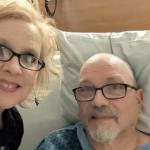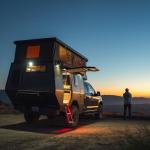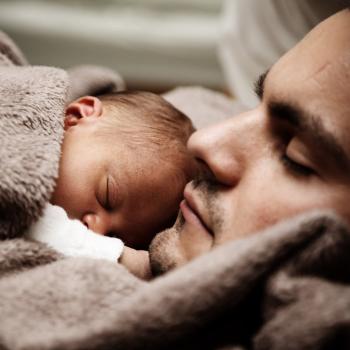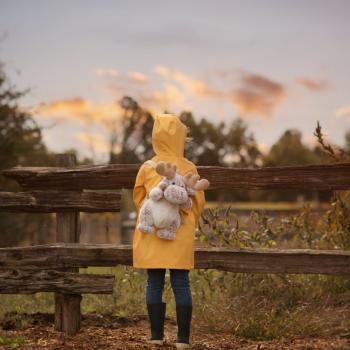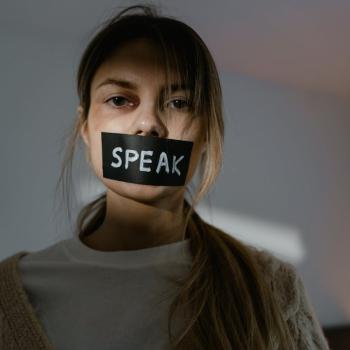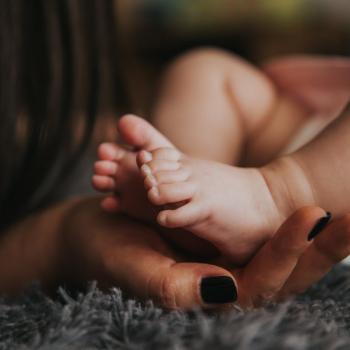Travel Tips for the Desert – Part 1

We often tell people that sometimes it feels like you are wandering out into the desert when you embark on a journey of discovery. That is why we call our podcast and this blog The Desert Sanctuary. That is especially true when you are deconstructing from religion. It is challenging work and there are no well-worn paths for you to follow, and it is best not to follow anyone’s specific path. This is your journey!
However, after interviewing hundreds of people on our podcast, we noticed things people told us helped them in their journey. We continue to refine this in our writing and in our interviews. Please take these as general guidelines and not requirements, and hopefully, you will have something to add to the list that we haven’t thought of.
1. Get distance from your trauma location.
When I first stepped down from the pulpit and stopped being a pastor in a church, my first inclination was to harbor out in a bigger church and soon I was looking for ways I could interject myself back into the ministry. But even though this church was closer to where I thought I was going theologically; churches have similar DNA and they often share the systemic problems of organized religion.
Our inclination, when we start healing our trauma and finding answers to questions, is to try to fix the family of origin or the religious system that contributed to our grief. But organizations and families are slow to change and sometimes they never do. Just like with our theology, we must intend to follow through to the end and find answers, even if that takes us away from what we once found security in. Until we are healthy again, which may take longer than we think, most of the systemic problems are too big and won’t even be investigated until enough people abandon them and force them to reevaluate and do their own deconstruction. People do not change until they are motivated to do so.
2. Realize you will lose friends.
When we are in grade school, we assume the friends we have are the friends we will always have. I had some close friends in high school who did not even survive us all going to college and starting the next phase. I had friends in college and friends at every job that I ever held, but every one of those friendships changed when something changed about my life.
Lately, I have come to realize that even some members of my family of origin may never be close again. We fostered and developed relationships at all three of the churches we pastored, but after we left, we lost touch and very few of them reached out at all. When we were deconstructing and stepping away from my old denomination, I noticed that most of my friends in that denomination weren’t available anymore. A new friend of ours told us, “You will make new friends, and we did!
You will lose friends because they can’t go with you on the journey you’re taking. But you will find new friends on the road ahead.
3. Learn to listen to your body.
Many religions promote the myth that our body is just mostly bad, and we cannot trust the signals it gives us. This thought is misguided and harmful to us. When we become more trauma-informed, we understand that our bodies carry great wisdom and are also a key to developing intuition and healing from trauma. They are sending us the messages we need for healing, so it would behoove us to cultivate a mind-body practice along with somatic healing. I recommend that all those in Deconstruction read “The Body Keeps the Score” by Bessel van der Kolk. In addition, Laura and I have documented our healing journey in our blogs and our recent books. Your nervous system stores the trauma, but it is also trying to tell you that it needs attention, and it wants to communicate with you to restore your natural mental well-being.
4. Learn who you are (Authenticity)
If you are walking away from religion or a high-control family, you will experience PTSD, because, for most of your life, someone has told you who you should be, what you should do, or how you should believe. Now that you have separated and started asking bigger questions, you will experience an identity crisis that asks:
- Who am I?
- What do I like to do?
- What do I believe?
- How should I act?
- What are the rules?
- How do I set boundaries?
Most people who evolve out of religion are afraid to try new things since they believe in a slippery slope and that they will somehow plunge into an evil lifestyle. I can tell you from first-hand experience that I have investigated many things that I knew nothing about. Some of them were things that I wanted to practice, a few of them did not feel right, and many of them I wanted to keep investigating. None of these things became my new religion but they helped add to my authenticity because they are helping me discover who I am. By the way, I am also a better person since leaving organized religion. It is because I can authentically investigate the things I have questions about without having to mold and conform them to a belief system that started as someone asking questions. My goal is not to create a new dogma or belief system. My goal is to discover myself!
5. Learn to be where you are (Presence)
One of my favorite teachers was Ms. Beaty. In those days, teachers would take the roll. They would say your name and then instruct you to say “here” or “present.” Both words meant the same thing at that time, but now we understand they can have different meanings. When my teacher asked, “Are you present?” she meant, “Are you here?” When Laura asks me “Are you here?” she means, “Are you present?”
There is a time to visit the past, just like I explained in my story. Sometimes, we at least need to have a felt sense of our past self, and we can do some genuine healing there. We also occasionally need to make some plans, but future trips often lead us on unnecessary adventures to unproductive living.
The best place to be is where we are!
Stay tuned for more travel tips during the holidays!
Be where you are, be who you are, be at peace,
Karl Forehand
A Stroke and a Song
Probing the Paranormal – Part 2
Veterans Day and Violence
Religious Trauma Resources https://thedesertsanctuary.org/treasure-trove/
The Desert Sanctuary Podcasthttps://podcasts.apple.com/us/podcast/the-desert-sanctuary/id1345562241

Karl Forehand is a former pastor, podcaster, and award-winning author. His books include Out into the Desert, Leaning Forward, Apparent Faith: What Fatherhood Taught Me About the Father’s Heart, The Tea Shop and Being: A Journey Toward Presence and Authenticity. He is the creator of The Desert Sanctuary podcast and community. He is married to his wife Laura of 35 years and has one dog named Winston. His three children are grown and are beginning to multiply! You can read more about the author here.


